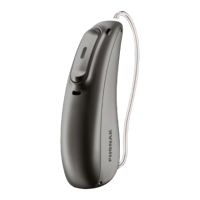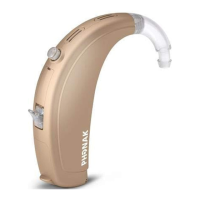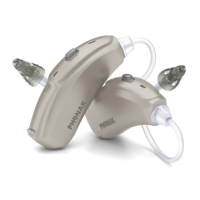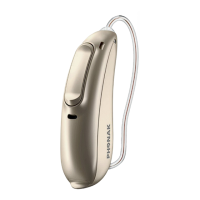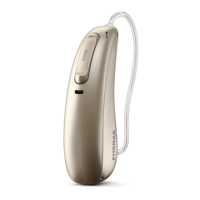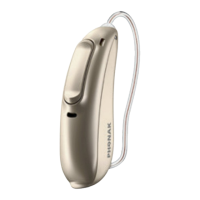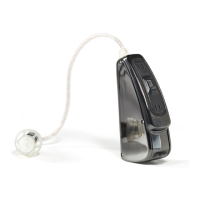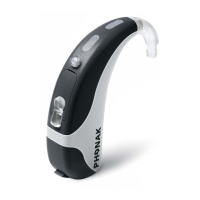78 79
(v) Unilateral hearing loss of sudden or recent onset
within the previous 90 days.
(vi) Audiometric air-bone gap equal to or greater than
15decibels at 500 hertz (Hz), 1,000 Hz, and 2,000 Hz.
(vii) Visible evidence of signicant cerumen accumulation
or a foreign body in the ear canal.
(viii) Pain or discomfort in the ear. Special care should be
exercised in selecting and tting a hearing aid whose
maximum sound pressure level exceeds 132 decibels
because there may be risk of impairing the remaining
hearing of the hearing aid user. (This provision is required
only for those hearing aids with a maximum sound
pressure capability greater than 132 decibels (dB).)
Important Notice for Prospective Hearing Aid Users
Good health practice requires that a person with a
hearing loss have a medical evaluation by a licensed
physician (preferably a physician who specializes in
diseases of the ear) before purchasing a hearing aid.
Licensed physicians who specialize in diseases of the ear
are often referred to as otolaryngologists, otologists or
otorhinolaryngologists. The purpose of medical evaluation
is to assure that all medically treatable conditions that
may aect hearing are identied and treated before
thehearing aid is purchased.
Following the medical evaluation, the physician will give
you a written statement that states that your hearing loss
has been medically evaluated and that you may be
considered a candidate for a hearing aid. The physician
will refer you to an audiologist or a hearing aid dispenser,
as appropriate, for a hearing aid evaluation.

